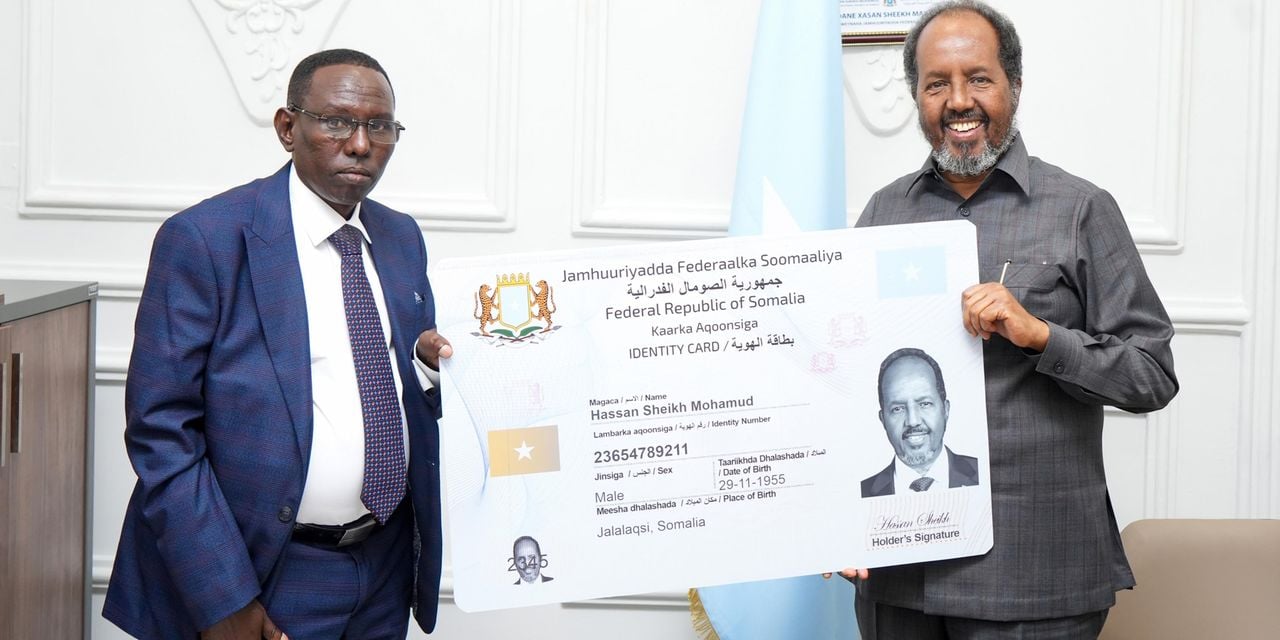Somalia has initiated the implementation of a national identity card system, marking a significant development after a hiatus of three decades. On September 16, President Hassan Sheikh Mohamud received his national identity card during a symbolic ceremony held in Dusamareb town in Central Somalia. This event underscores the country’s commitment to establishing a central database of unique citizen identifiers, a crucial element that has been missing for 33 years.
President Mohamud, who has been engaged in military operations against the extremist group Al-Shabaab in parts of Central Somalia for over a month, participated in a two-day conference in Mogadishu via a video link. This conference marked the official launch of the National Identification system.
Prime Minister Hamza Abdi Barre presided over the conference, which took place at Afasyioni Hall within the Aden Abdulle International Airport perimeter on September 16-17. He also received his national identity card during the event. Barre expressed the significance of this moment, stating, “Today’s event represents a grand day for Somalia as we finally lay the foundations of a reliable and all-inclusive national identification system that is recognized across the world.”
Organized by Somalia’s National Identification & Registration Authority (NIRA), the conference introduced Somalia to a digital identity system, a development that follows the collapse of the previous identification system with the downfall of the military regime in the early 1990s.
Barre emphasized that the new identification system would contribute to national security efforts by combating terrorism and identity fraud. He noted, “The system being introduced will improve our businesses and the performance of our economy, our banks, communication, and Hawala money transfer systems. It will severely deal with terror networks and the fight against extremism.”
High-profile diplomats, including the United Nations Special Representative for Somalia, Catriona Laing, attended the inauguration of the Somali National ID Conference. Laing commended the Somali government for this initiative, highlighting its potential in strengthening good governance. She stated, “The system propels both private and financial sector growth.”
The World Bank sponsored the project, and Kristina Svensson, the Country Manager for Somalia, expressed optimism about the positive impact of the national ID system. She remarked, “I greatly feel optimism that the national ID will help in the fight against the Al Shabaab terror group.”
Somalia’s main database for citizens collapsed as the country fell into chaos among warlords following the defeat of Siad Barre’s military regime. Many related institutions are now being rebuilt with financial and technical support from development partners.
Recently, Somalia established its first statistics agency in three decades, which is expected to conduct a census and determine the size of the adult population in the country. The absence of a trusted form of identification has hindered consistent use of formal names among Somalis, enabling crimes such as terrorism to thrive.




















